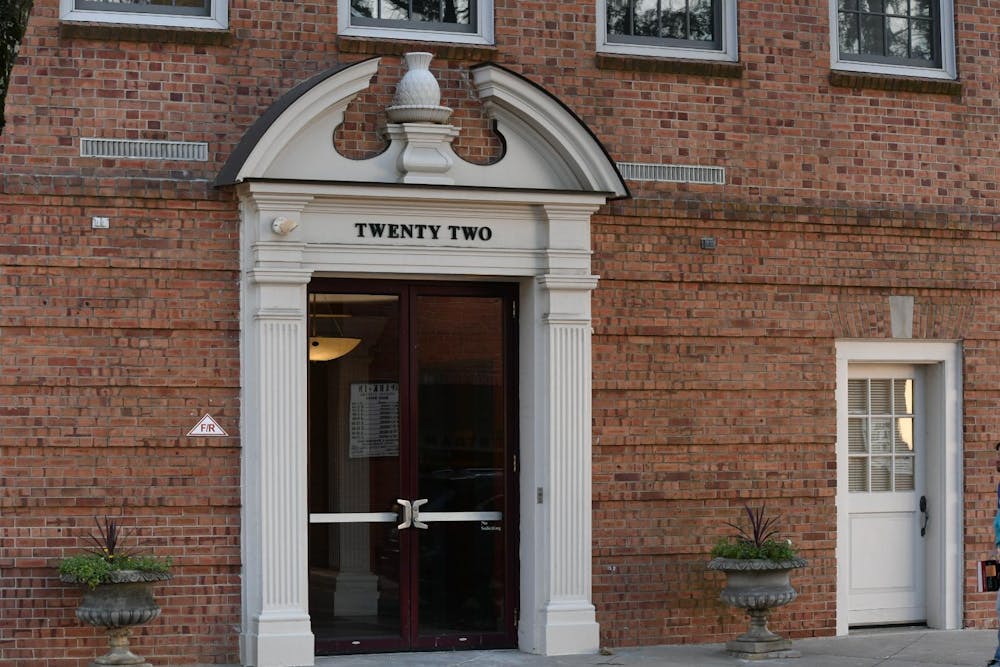Our nation’s public education is underfunded, while its elite universities — such as Princeton — continue to rob our public dollars, taking multiples of what public universities do from government coffers. But neither the endowments of these private universities nor their wealth are taxed significantly, with a mere 1.4 percent federal tax placed on the endowments of rich private universities in 2017.
Last year in Massachusetts, legislators introduced a bill to place a 2.5 percent tax on endowments of private universities worth over $1 billion — including Harvard’s $50.1 billion endowment. This bill would, according to its sponsors, raise enough to make college free in the state, with additional funds for early education. It’s time for New Jersey to follow Massachusetts’ lead.
In the last decade, Princeton has recorded an average return of 9.2 percent on the endowment. New Jersey could place an annual wealth tax of five percent on Princeton’s endowment without threatening Princeton’s long-term existence (in fact, five percent is a cautious rate).
Yes, following Princeton’s unofficial motto, elite universities should contribute to the well-being of the nation. But more directly, as colleague Wynne Conger has argued, Princeton should redirect the endowment towards its local community. Its community extends beyond just Princeton, which she discusses, but also to greater New Jersey. And in New Jersey, we should give back to the public eduction system that educated 64 percent of us.
The state could use the new tax revenue to send resources to underperforming schools, such as those in Trenton, where a mere ten percent of students are proficient in math and reading. We could also fund an ambitious plan for universal preschool, or work towards making public college education free.
This is critically a state tax, not a federal tax. At the moment, we cannot trust the federal government — which is obsessed with ideological attacks instead of tangible strategies to improve our nation’s education — to use our endowment dollars well.
A federal endowment tax wouldn’t work, because our current administration is not willing to support public education — their goals are quite the opposite, in fact. At the same time, it is unfair that Princeton is wholly exempted from taxes — the people are the ones who front the cost of these tax breaks.
In the meantime, there’s another path: an endowment tax on the state level, specifically dedicated towards public education and nothing else. With the struggling state of education throughout the nation, a state-level tax isn’t perfect, but it is the most feasible option at the moment.

There are common-sense exemptions that can ensure an expansion of educational access within elite universities, as well. We should exempt the portion of the endowment spent on financial aid — which, as it turns out, is not a huge amount, with just nine percent of Princeton’s annual budget going towards aid. It’s interesting that Eisgruber emphasizes the potential threat to affordable education that an endowment tax could pose when financial aid is a rather small portion of Princeton’s spending.
The Brookings Institution, a DC-based think tank, provides other ideas for tax breaks, which would promote equitable behavior from elite universities. Universities that admit higher percentages of Pell-eligible students should be given reductions in their taxes, and we should also exempt endowment funds that go towards educational access programs. We still need to generate revenue for public education, so there should be strong rates regardless of a school’s behavior — but there should also be room to reward improvement with fiscal motivations.
Because remember: our elite universities are a haven for the children of the nation’s richest, with our preferential admissions for legacies and our remarkable lack of low-income students. We pride ourselves on our education, but we’re detached from the rest of the educational community, hoarding generational wealth for ourselves through tax breaks. It is unfair and inefficient to concentrate billions of dollars on institutions that serve a few thousand disproportionately wealthy students — but through this tax, we could help students from all economic backgrounds have access to quality public education.
If we are committed to being in the “nation’s service,” and if we are interested in the genuine well-being of our public education, we must open our coffers to the public, and let our public schools thrive alongside our own institution. Brilliant students have been stifled for far too long due to financial constraints — and that can, and must, change.

Raf Basas (he/him/his) is a first-year opinion columnist from Elk Grove, Calif. intending to major in English, Politics, or SPIA. He can be reached at rb4078[at]princeton.edu or @raf.basas on Instagram. His column, “Out of the Ivory Tower,” runs every two weeks on Tuesdays. All of his columns can be read here.
Correction: A previous version of this article said that the endowment is not taxed. In fact, there has been a 1.4 percent federal endowment tax since 2017. The ‘Prince’ regrets this error.








